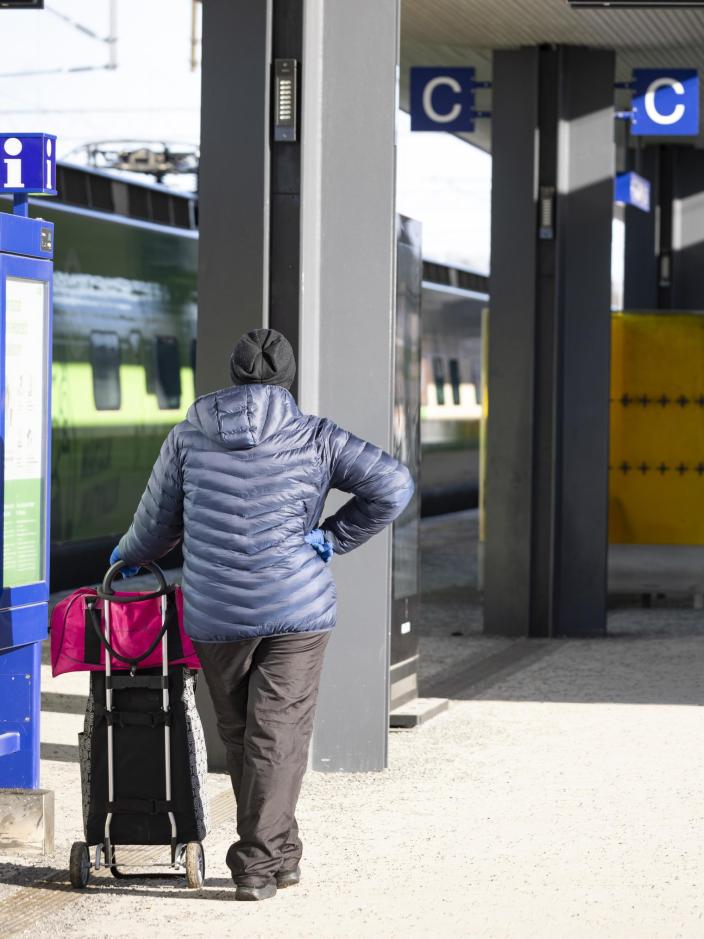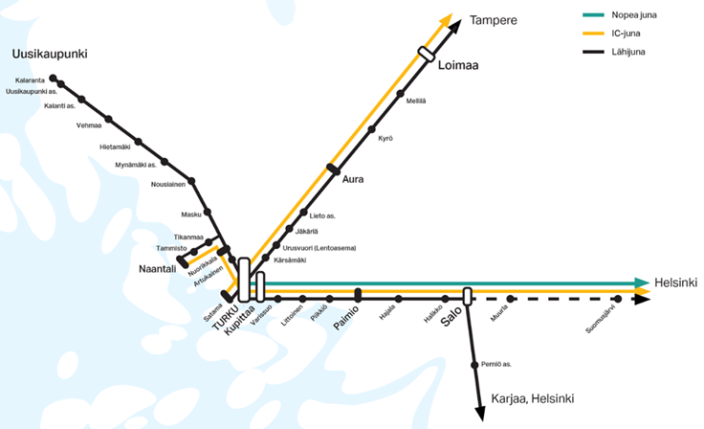The City of Turku is coordinating a two-year project to explore the possibilities of implementing commuter rail transport in Southwest Finland.
The municipalities along the railway lines have launched a two-year project called "Commuter trains in Southwest Finland", which aims to produce a concrete plan for the implementation of regional rail transport in Southwest Finland.
In addition to the City of Turku, the project involves Aura, Kaarina, Lieto, Loimaa, Masku, Mynämäki, Naantali, Paimio, Pöytyä, Raisio, Salo, Turku, Uusikaupunki and Vehmaa. In addition to the municipalities, the steering group of the project includes representatives of The Regional Council of Southwest Finland and the Turku Chamber of Commerce.
The short-distance train service from Turku would run to Uusikaupunki, Naantali, Tampere and Salo. If implemented, it would provide an important backbone for public transport throughout Southwest Finland.
Background to the rail reform
Passenger rail transport in transition
More information on this topic
The website of The Regional Council of Southwest Finland contains a collection of studies related to regional rail transport.
Promoting rail transport - The Regional Council of Southwest Finland
A few episodes of the City of Turku's "Liikennepodcast" have been made about commuter rail transport.
Transport and Communications Agency Traficom's RARE passenger rail procurement in the 2030s newsletter provides an update on the progress of the rail reform. You can subscribe to the newsletter on the Tarficom website.
.

